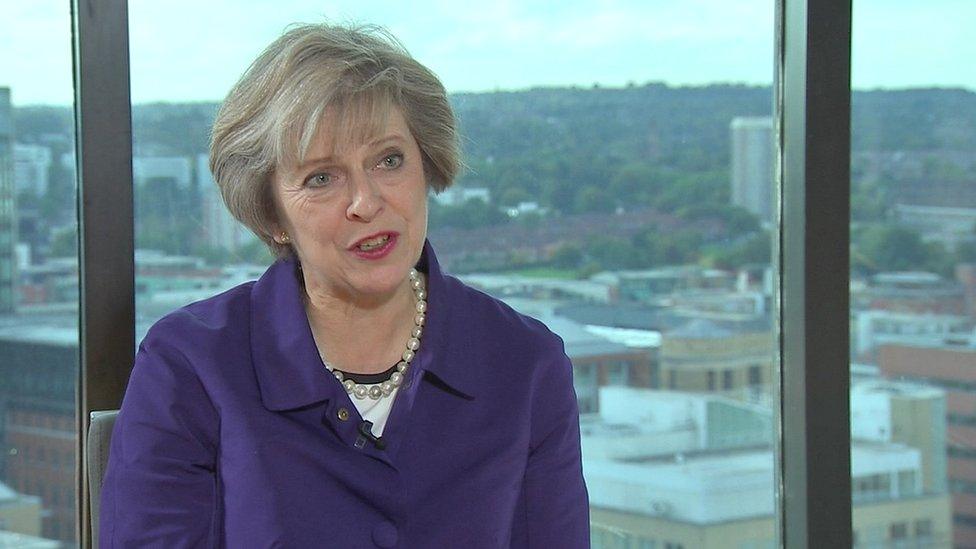Businesses react to Conservative plans for listing foreign workers
- Published

Amber Rudd says she wants to "flush out" companies abusing existing rules
Business owners have given a mixed reaction to government proposals that could require companies to disclose what percentage of their workforce is non-British.
Home Secretary Amber Rudd defended the plans for companies to do more to employ British people, saying she was not "racist" for talking about immigration.
Benji Lanyado, who runs the London-based picture agency start-up Picfair, is opposed to the plans "not as a business decision, but a very simple moral one".
He voiced his opposition on Twitter, external and, speaking to the BBC, said he thought the "dangerous" proposals would "weaken" the UK.

Benji Lanyado would refuse to reveal the breakdown of where his workers are from
"Submitting a list of colleagues who are not British-born will make them feel less secure, less welcome, and justifiably scared," he said.
"It's not something I'd be prepared to do to my colleagues.
"To encourage broad-brush shaming of firms who employ foreign workers is clumsy at best and dangerous at worst."
Mr Lanyado's company currently has a staff of 10, but he said he would refuse to reveal how many of them were from outside the UK, "on principle".
"If I was an outstanding foreign engineer, doctor, nurse, teacher or scientist, I'd be thinking twice about ever working in the UK," he said.
"This, ultimately, will weaken us.
"We need to be seen as an exciting, global hub for exceptional companies and ideas, not an inward-looking island that is happy to scare its foreigners for the sake of political bargaining."

Will Beckett is co-founder of the Hawksmoor restaurant chain
Hawksmoor co-founder Will Beckett reacted to Ms Rudd's comments by tweeting a breakdown of the nationalities, external of the more than 650 workers employed by the restaurant chain.
The company's workforce is made up of 40% British employees and 60% workers from overseas.
"We keep track of where people [who work for us] come from, and we really like our diversity," Mr Beckett said after the social media post received more than 800 combined likes and retweets.
"I'm not sure if that makes me pro- or anti- Amber Rudd's comments.
"We're not ashamed of the number of non-British workers.
"It also matters to me that our company is seen as a legitimate job choice and that is reflected in our high number of British workers.
"Everyone in the restaurant industry is concerned.
"The number of British workers in our company is also quite high for the restaurant trade.
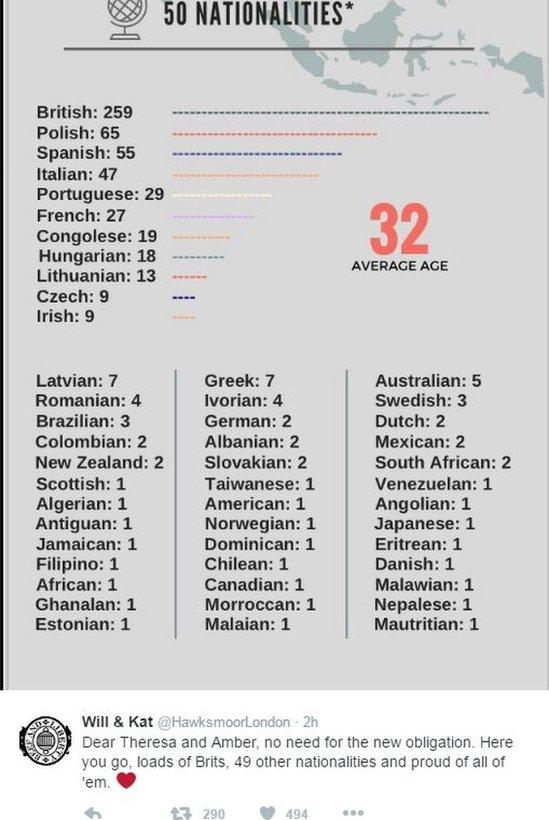
"There is a reaction from our staff post-Brexit like, 'Does this country now not want me here?'
"We want people to feel like we want them here.
"There is no shame in saying it."
Mr Beckett also said he "was cool with" a number of tweets pointing out "a few typos" in his breakdown of staff nationalities.
"No-one was saying anything about the numbers," he said.
Mark Catterall, who chairs Bristol-based Centaur foods, which employs 20 people - split evenly between UK and non-British employees - said he had "no problem" with the proposals and would be happy to disclose the nationalities of his workforce.

Martin Sandhu says there is a shortage of tech skills in Nottingham
However, he said, the government needed to consider the "quality of candidates" available to businesses looking for the "best people possible".
"One of the biggest issues business owners face when advertising a job vacancy is the quality of candidates - what few there are - from the UK versus those, particularly, from other parts of the EU," he said.
"We seem to be faced with a straight choice between an enthusiastic, well qualified individual from Central or Eastern Europe, exhibiting a strong worth ethic, or a disinterested British youngster who often decides they are not interested in the job.
"The problem, in my experience, is not that businesses are unwilling to recruit or train young Brits, but parents, schools and successive governments have failed to instil in our young people the understanding that little is achieved in life without hard work."
Martin Sandhu, managing director of Nottingham-based digital marketing agency Roller, also said he had roughly an even split of UK and non-UK workers among his 25 staff.
He tweeted Ms Rudd directly,, external pointing out the importance of non-UK workers to his company.
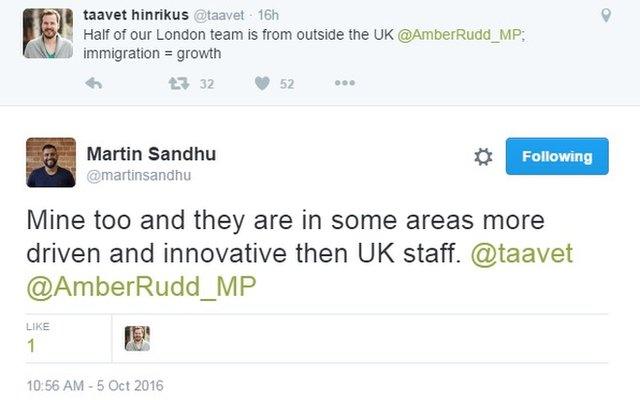
"In the tech area - particularly in an area like Nottingham - there is such a shortage of skills," he said.
"My experience is that many British workers don't have the have the same skill-set or drive as workers from Asia, the US or Europe.
"I don't distinguish between 'foreign workers' or others.
"If people are committed and driven, that is what matters to employers."
Produced by the UGC & Social News team
- Published5 October 2016
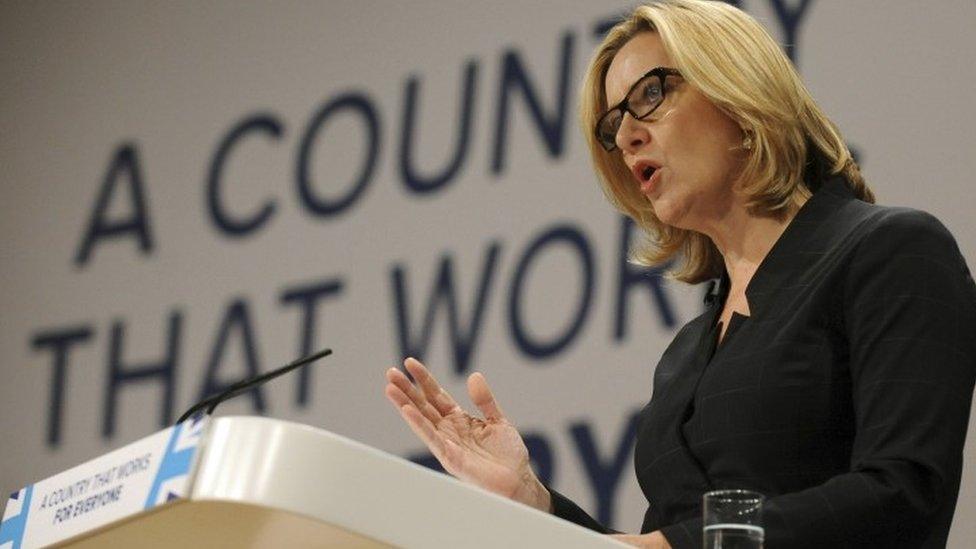
- Published4 October 2016
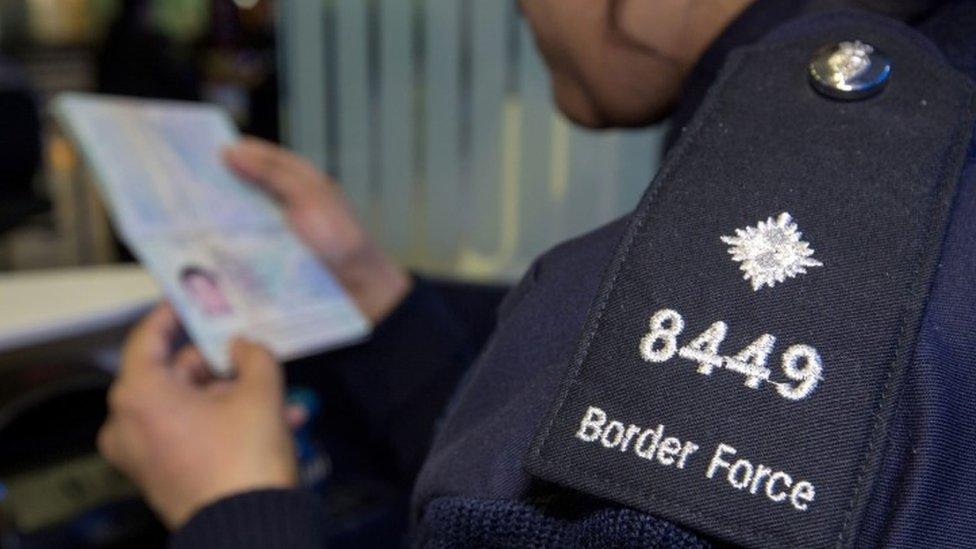
- Published3 October 2016
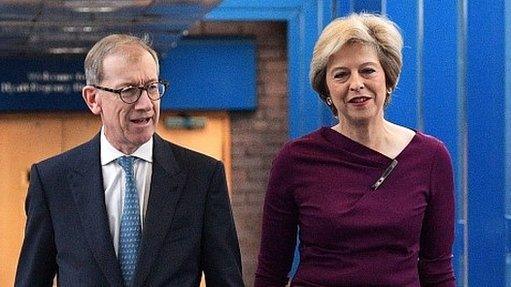
- Published4 October 2016
